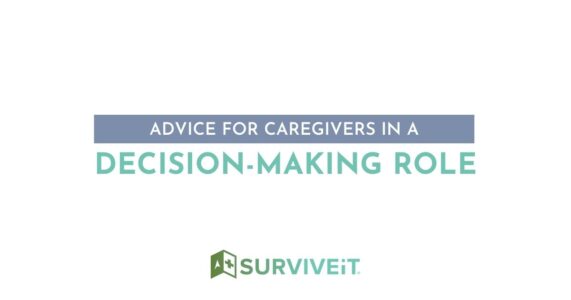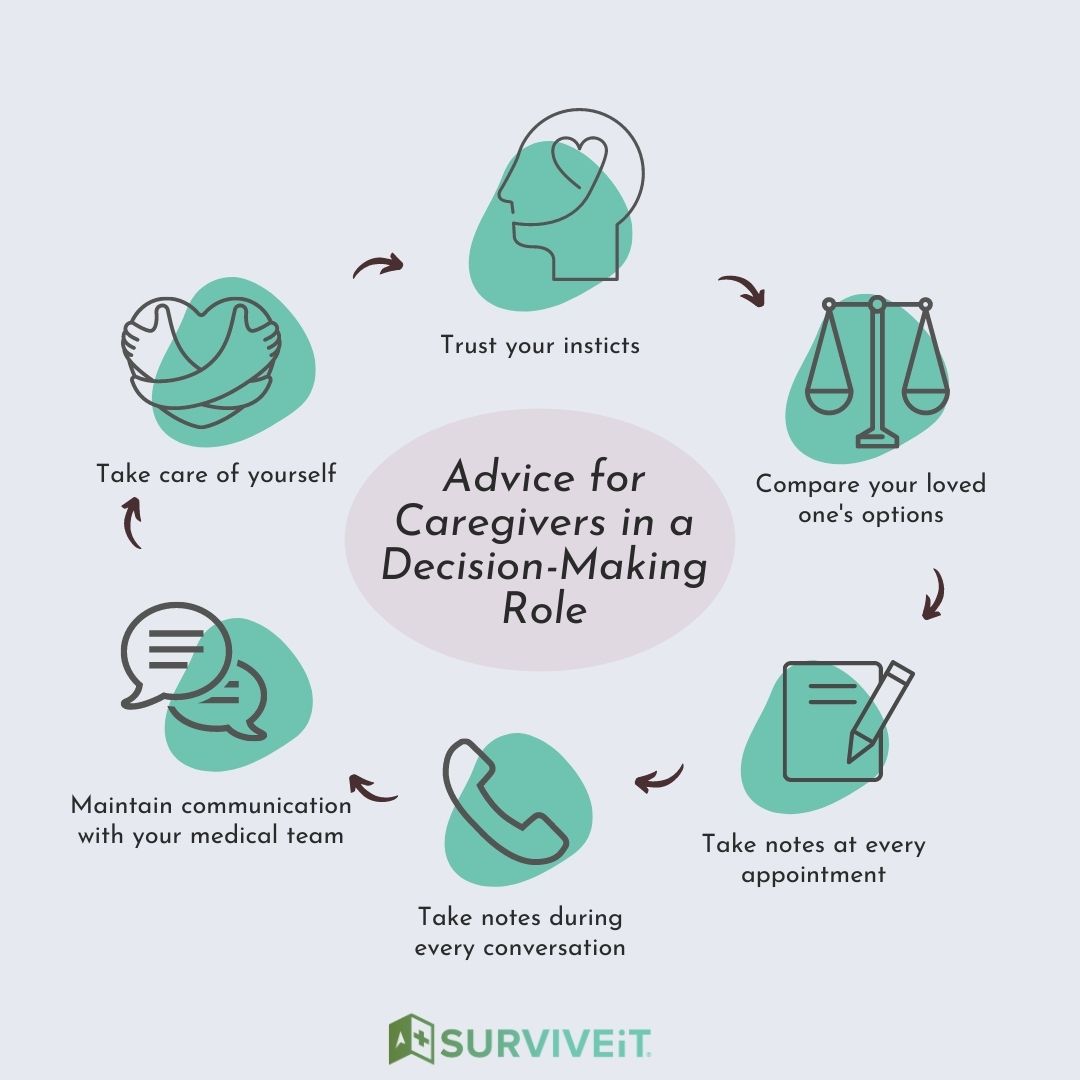Advice for Cancer Caregivers in a Decision-Making Role

Being a caregiver for a loved one with cancer is a selfless role for anyone to take on. So first, we want to say thank you. You are a pivotal part of your loved one’s life, so we want to recognize you for the incredible things you do every day.
To help support you, and the decisions you will make on behalf of your loved one, we have created a resource of advice and tips for cancer caregivers in a decision-making role.
The #1 piece of advice we can offer, is to take a look at our interactive Cancer Navigation Tool. Built by survivors and caregivers just for you.
If you are a caregiver and are not the key decision-maker, please see this article of advice for cancer caregivers in a supportive role.
Advice for caregivers in a decision-making role
Trust your instincts.
This is a big weight to carry. Know that you are in this role because of the important part you played in the patient’s life before cancer. You likely know, love, and care for them deeply.
There are likely times where you are wondering if you’re making the right decision. Trust your instincts. Do your research, utilize any resources available to you. But at the end of the day, it comes down to trusting your gut.
Compare your loved one’s options.
It can be overwhelming to take on a decision-making role so use the resources that are available to you. Our Cancer Navigation Tool can help you:
- Seek a qualified second opinion – you’ll either get another treatment option or get confirmation that the first suggestion is the right one.
- Consider potentially using home care package software and other healthcare management tools- This is an option that might be suitable for carers who have a lot on their minds and few tools to help them keep track of treatments and services
- Compare treatment options – We created this short form to compare, should you have more than one.
- Manage side effects – In step 4 of the tool, there is a list of physical and emotional side effects, with ideas to mitigate them.
- Keep your goals and decisions in one secure place.
We designed this tool to help you.
“This is a really good step-by-step guide about what to expect in this process, questions to ask your doctors, validating you’ve made the right decisions or looking at other options.” – Jenn, Caregiver
Take notes at every appointment, during every conversation.
There are many topics discussed and future dates talked about in meetings with the medical team. Many of us have multiple doctors, specialists as part of the team. We recommend taking notes at every appointment, during every conversation. Some examples:
- Date, time, people in the meeting
- Summary of the appointment* (This is very important! By repeating back what you heard to your doctor/nurse, you can ensure you understood it correctly.)
- Next scan, appointment
- Concerns coming into the appointment (Discuss this with the patient prior, jot down things as they come up.)
- Any medications that need to be refilled.
- Outstanding questions
- Referrals to a different specialist, doctor and why.
Maintain communication with your medical team.
As your loved one’s caregiver, make sure you keep the lines of communication open with your medical team.
Now that many treatment centers have electronic medical records software and platforms to communicate, we are talking with the team more regularly, which is great! However, not everyone has access to that or knows how to use it. This is why keeping a notepad for appointments is helping. You can jot down questions, information in between appointments so you don’t forget to ask next time you see them.
If your loved one is really struggling with treatment (physically or mentally), please reach out to your medical team and let them know. There are staff members who should be able to help you on a more frequent basis – and offer you, the caregiver, support and tips. In such cases, if treatment is being done at the hospital, make sure that the hospital provides interactive patient care (you can click here to learn what interactive patient care is) and has the necessary infrastructure to provide such care services.
Take care of yourself.
When taking care of someone else, the most important thing you can do is take care of yourself as well. Your role as a caregiver can bring on a lot of emotions, stress and new experiences to process, so you want to make sure you’re in the best physical and mental state possible. Make sure you take time to focus on your own needs, time to talk to other people, and time to rest.

